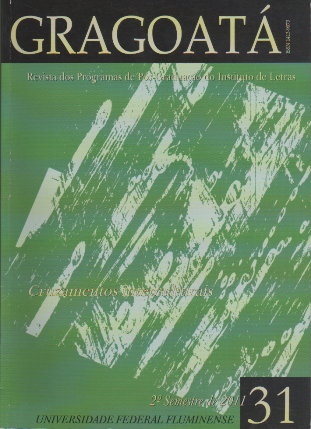Female desire and subjectivity in English language narratives: fictional staging of love
DOI:
https://doi.org/10.22409/gragoata.2011n31a33049Keywords:
adultery, body, erotic desire, feminism, subjectivityAbstract
Focused on the novel produced within the scope of literatures in English language, the present text comprehends a thematic outline which highlights the narrative representations of conjugal life. The objective of this paper is to explore marriage in a double sense: the (perfect) “marriage” between the form of the novel and the representation of fictional loves; and marriage as the novel’s theme. Privileging the subtheme of adultery, as practiced by female characters, the analysis emphasizes the moments especially intense of passionate actions (“scenes”, in which desire explodes in textual form that is to a certain extent detached from the total narrative that it is part of). To illustrate the theory, we propose a reading of the novel The End of the Affair, by Graham Greene.
Downloads
Downloads
Published
How to Cite
Issue
Section
License
Authors who publish in Gragoatá agree to the following terms:
The authors retain the rights and give the journal the right to the first publication, simultaneously subject to a Creative Commons license CC-BY-NC 4.0, which allows sharing by third parties with due mention to the author and the first publication by Gragoatá.
Authors may enter into additional and separate contractual arrangements for the non-exclusive distribution of the published version of the work (for example, posting it in an institutional repository or publishing it in a book), with recognition of its initial publication in Gragoatá.

Gragoatá is licensed under a Creative Commons - Attribution-NonCommercial 4.0 International.











